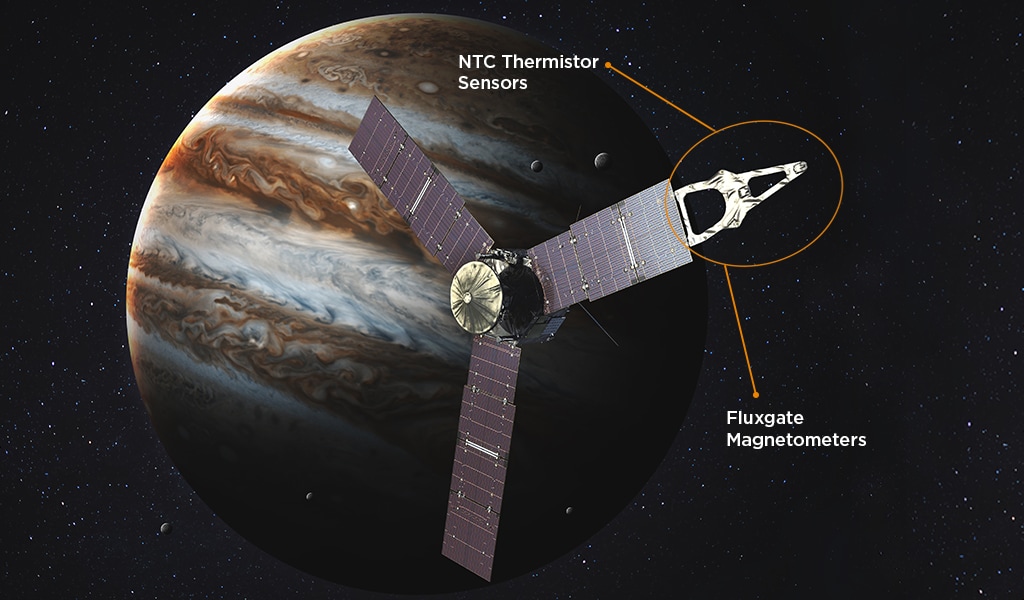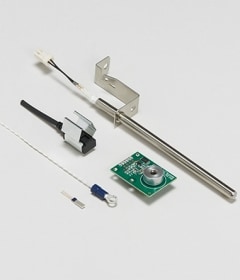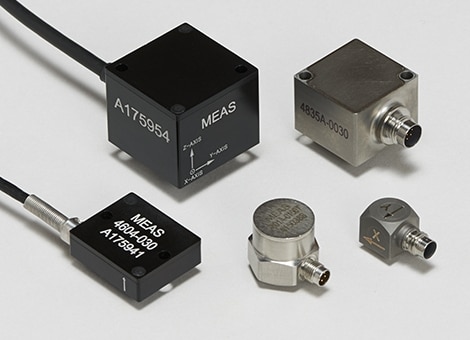
White Paper
Sensors in Space
TE Connectivity (TE) is contributing to aerospace innovation by providing negative temperature coefficient (NTC) thermistors in NASA’s Juno spacecraft, the second mission exploring Jupiter. TE thermistors are measuring the temperature of Juno’s magnetometers to ensure reliable measurement and data collection during high temperatures.
As a rocket launches, pressure sensors are exposed to the air as it flows over the rocket surfaces. Because launch velocities are quite high (exceed Mach 4 or 3000 mph), the air applies substantial pressures and forces to the rocket skin and airframe creating an extremely harsh environment.
TE Connectivity (TE) pressure sensors monitor these forces to be certain they remain within the design limits of the airframe. This is a critical piece of engineering for companies like NASA and other aerospace OEMs.
Most recently in the aerospace industry, TE is contributing to innovation by including MEMS accelerometers in the Solar Impulse project, the first solar plane to fly around the world ending last month in Abu Dhabi and negative temperature coefficient (NTC) thermistors in NASA’s Juno spacecraft, the second mission to orbit Jupiter. The Juno spacecraft is currently on a five year mission to provide unprecedented data on the complex aurora of Jupiter by gathering data on its interior. Seven science instruments on board Juno will help scientists better understand the planet's origins, structure, atmosphere and magnetosphere. It will be closest to Jupiter on August 27 of this year. The mission is scheduled to end in February 2018 when it will be diverted to crash into Jupiter’s atmosphere.

The Juno spacecraft has TE sensors on board; two magnetometers that are mounted on the boom (see below). The fluxgate magnetometers (FGM)’s will measure Jupiter’s magnetic field and create a three-dimensional picture of the magnetic environment. This is the first time a mission has mapped the magnetic field about any planet with an active dynamo, beyond earth.
TE NTC thermistor sensors are used for temperature measurement and are qualified for extended space flight applications per the NASA GSFC S-311-P-18 specification. The thermistors are small, with high sensitivity and include operational temperatures from -55°C to 150°C with dimensions ranging from 2.4 mm to 2.8mm. TE thermistors are measuring the temperature of Juno’s magnetometers to confirm reliable measurement and data collection. The key attributes are space legacy, long term stability and tight tolerance of ±0.20°C from 0°C to 70°C.
TE thermistors are measuring the temperature of Juno’s magnetometers to confirm reliable measurement and data collection during high temperatures.
NASA’s Pioneer 10, which was the first spacecraft to complete a mission to Jupiter launched in the early 1970s, also contained TE legacy sensors. TE has been supplying thermistors for space related applications for over 40 years to NASA and many other aerospace companies since the mid-1970s. In the early 1970s NASA approached one of TE’s legacy sensor companies to discuss the feasibility of qualifying our commercial 4400 series thermistors for extended space flight applications. As a result of this collaboration, the NASA GSFC (Goddard Space Flight Center) S-311-P-18 specification was released. TE Connectivity remains on the NASA QPLD (Qualified Parts List Directory) for the S-311-P-18 thermistors.
By leveraging our core competencies in high reliability sensors for harsh environments such as temperature, radio frequency interference (RFI), electromagnetic interference (EMI), vibration, and lightning, we transform concepts into creations for a number of aerospace applications such as cockpit controls, flight controls and actuation, landing gear and brakes, cabin, galley and cargo, engine, turbine, launch and space explorations.
TE’s MEMS accelerometers used in the Solar Impulse are ultra-stable MEMS accelerometers ideal for static and dynamic applications. The accelerometer offers integral temperature compensation with dynamic range from ±2 to ±200g. The model 4610 incorporates a gas damped MEMS element with mechanical overload stops that provide shock protection to 5,000g. The accelerometer has an operating temperature range of -55°C to +125°C.
TE is a leading global provider of advanced design and manufacturing of accelerometers and vibration sensing for applications in aircraft design and testing, automotive design and testing, automotive safety testing, machine and structure monitoring and motorsport. We offer both DC-response (static) and AC-response (dynamic) types of accelerometers to meet your application needs. TE's board level silicon MEMS accelerometers and piezoelectric accelerometers are designed to be embedded into vibration monitoring systems.


